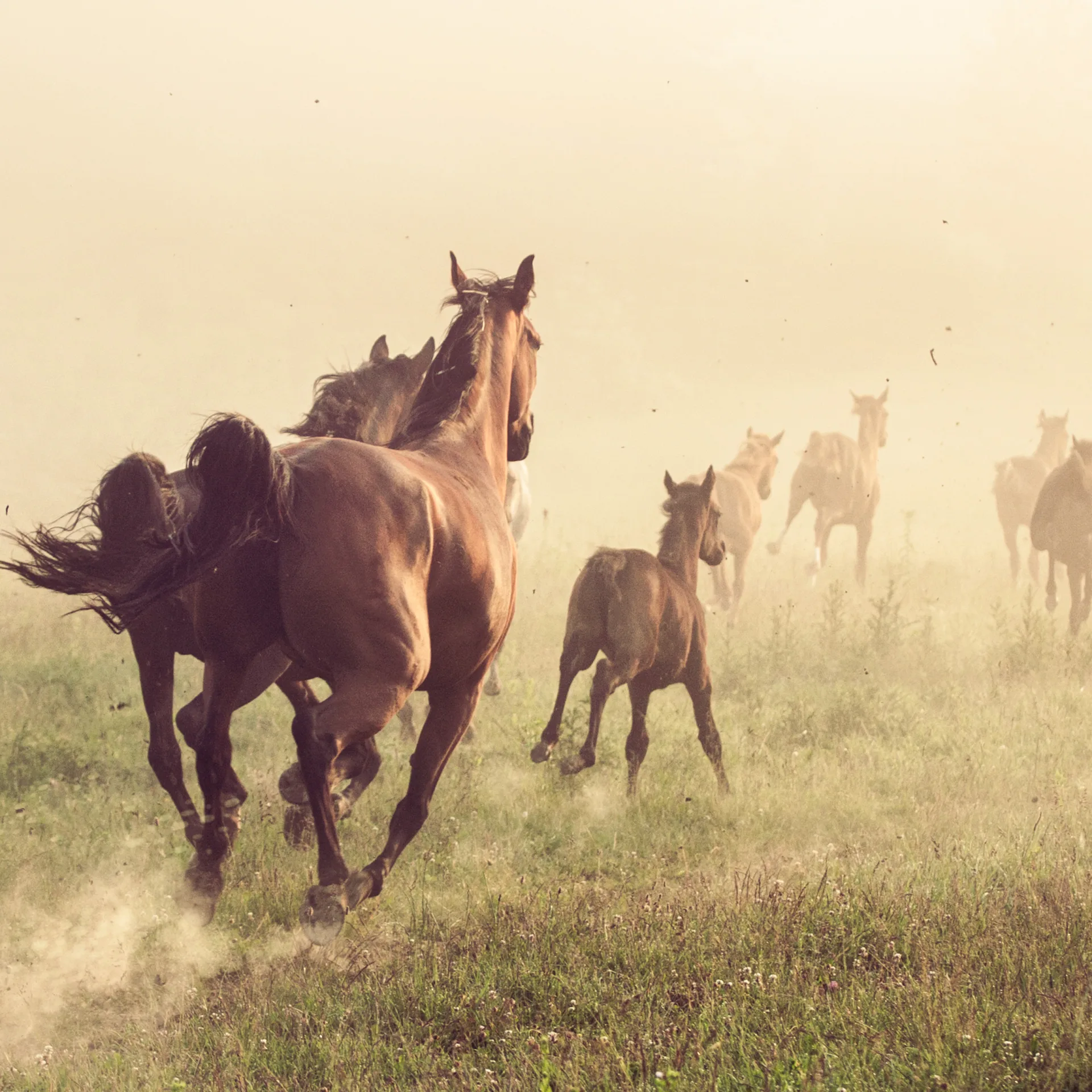The debate about what is innate and what is acquired has occupied many academic disciplines for centuries. Nevertheless, all parents in all cultures have faced the same challenge with their two-year-old children for generations: they constantly want to go beyond the limits that are set for them, take something apart, colour something in, etc. This shows how great the urge is in every human being to experience their self-efficacy beyond set boundaries.
We are convinced that people are born curious and that the desire for security, which occupies a prominent position in Maslov's pyramid, is only acquired later.

During puberty, we begin to realise that we are independent beings: We again prefer freedom to security. We want to change the world, cross boundaries and are prepared to offend our loved ones to do so.
Parents' existential fears are often transferred to young adults, usually underpinned by old role models and hierarchical thinking. Many young people capitulate when their parents tell them what they should do or learn how to behave in order to secure their livelihood, and they also become subscribed to security thinking. Often a stroke of fate between the ages of 40 and 50 reminds us of our finiteness - and we break out of our previous pattern. With curiosity and enthusiasm, we want to break boundaries once again in order to leave our mark on the world.Our neurology gives us another clue that we are born to curiosity to implement vision en - and are not naturally security-oriented: Dopamine is released as soon as something is new. Regardless of whether it's terrible or beautiful. This explains our desire to buy and our sensationalism. It would be optimal, wouldn't it, if we could bring our curiosity and our will to create into the place where we spend the most time (apart from sleeping): at work. These thoughts were the cornerstones in the development of the organic organization.
Because when we are afraid - and in most workplaces people are afraid - adrenaline interrupts the synapses and we can no longer think. At the same time, we have to move, because the adrenaline triggers the instinct to flee. If we can't, we either become aggressive as an attack or defense, lapse into rigor mortis, or worse, paralysis. Not having to think was probably still desirable on the assembly line, but in today's knowledge society, which has to stand up to a VUAK world, this is no longer an option.

Erich Fromm, der berühmte deutsche Philosoph und Psychoanalytiker, äusserte sich bereits vor fast 100 Jahren bereits zur psychischen Gesundheit ganzer Gesellschaften.
Im Video unten führt er seine Position aus, "dass der Mensch tatsächlich unter vielerlei Bedingungen
leben kann. Doch wenn diese seiner menschlichen Natur zuwiderlaufen, reagiert
er darauf, indem er die bestehenden Verhältnisse entweder ändert oder
seinen vernunftbedingten menschlichen Fähigkeiten entsagt, also sozusagen „abstumpft“.
(normativer Humanismus) " (Quelle: Wikipedia)
Die steht im Gegensatz zur bis heute von den meisten Geisteswissenschaftlern vertretenen Auffassung, dass der Mensch fast unbegrenzt formbar sei und unter fast allen Bedingungen leben könne. Für psychische Störungen seien Fehler im Individuum verantwortlich; die Betroffenen seien einfach nicht anpassungsfähig genug.
Unser BURRI Menschenbild und die organische Organisation ermöglichen die "aktive Veränderung der Bedingungen" und damit das Gestalten der Arbeit und unseres Umfeldes nach menschlichen Bedingungen.